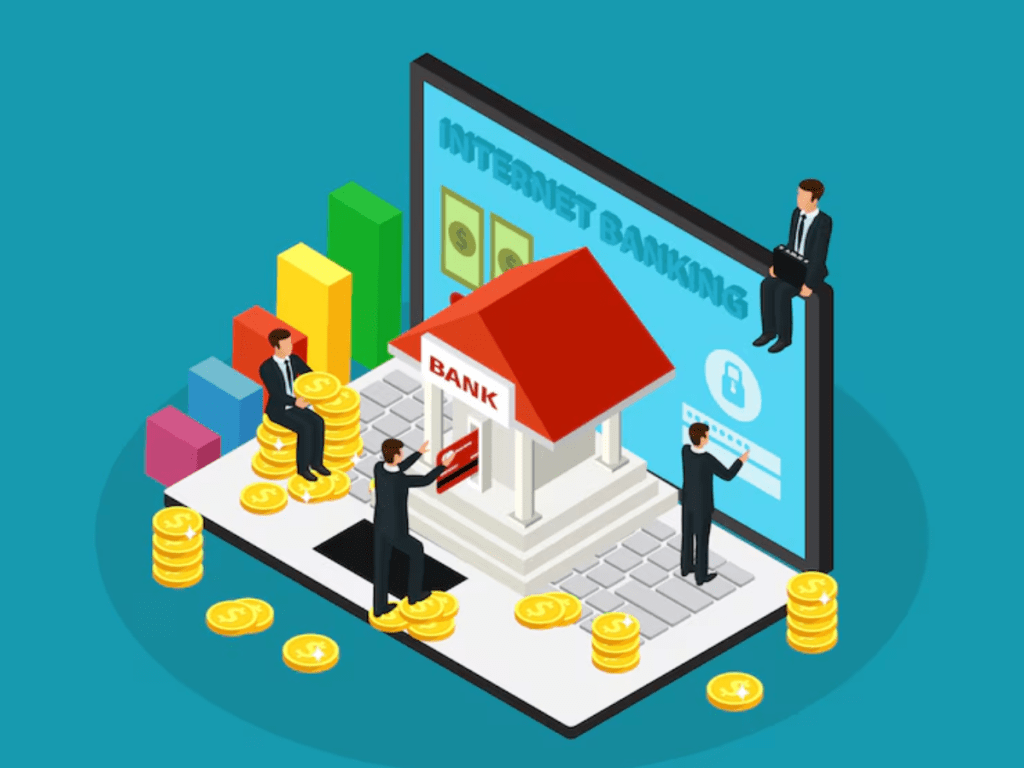Introduction
Over the past few years, the financial industry has seen a revolutionary change due to technological innovations. Among the most revolutionary innovations in this field is the emergence of smart contracts. These blockchain-based self-executing contracts have begun to transform many aspects of finance, especially personal and business loan agreements. Earlier, loan contracts used to be done on paper and had several middlemen involved in them, not only causing a delay but also raising the borrowing cost. Yet, smart contracts, which have the power to automate and execute loan contracts, provide an intelligent solution that is accelerating loan operations to be quicker, safer, and more transparent. This article delves into how smart contracts are revolutionizing personal and business loan agreements and the multitude of benefits they bring to both lenders and borrowers.
Understanding Smart Contracts
To fully appreciate the impact of smart contracts on the loan industry, it is essential to first understand what they are and how they work. Smart contracts are digital agreements that are programmed to execute automatically when certain conditions are met. Smart contracts differ from conventional contracts, which need human intervention to apply terms, since they are self-executing and operate without intermediaries. They are based on blockchain technology, which is a decentralized and tamper-proof ledger where transactions are stored in a secure and transparent way.
Terms and conditions for a smart contract are programmed into lines of code. The moment the stipulated conditions are met, the contract automatically performs the predetermined actions. As an example, in the case of a loan agreement, the smart contract would release funds automatically on the part of both the borrower and the lender when their respective obligations are fulfilled. On the other hand, should the borrower default repayment terms, the contract can automatically impose penalties or any other pre-agreed measures. This process minimizes human error, reduces costs, and speeds up the entire process, making it more efficient as well as secure.
The Traditional Loan Process
Prior to the advent of smart contracts, taking a loan, personal or business, was a conventional process that was slow and cumbersome. The process usually entailed a number of steps:
- Loan Application: The lender received an application from the borrower, along with required documents like proof of income, credit reports, and financial records. This process could be lengthy, especially for business loans, as it involved extensive documentation.
- Loan Approval: After the application had been submitted, the lender would then analyze the documents and determine the creditworthiness of the borrower. This may call for the use of third-party credit bureaus or financial analysts, further lengthening the approval period.
- Negotiation of Terms: Once approved, the lender and borrower would then negotiate the terms of the loan, such as interest rates, repayment schedules, and collateral demands. This was often a long process of give-and-take discussion, and any differences in terms would result in delays.
- Contract Drafting and Signing: After the terms were settled, the loan contract would be prepared, and the agreement would be signed by both sides. Legal experts were usually brought in to review and confirm that the contract was in line with local regulations and laws.
- Loan Disbursement: After signing the contract, the loan would be credited to the borrower’s account. Depending on the loan size and type, this might take a few days or even weeks.
- Repayment and Enforcement: Repayment usually followed a predetermined schedule, with the lender repaying the loan in installments. When the borrower defaulted on a payment, the lender would have to take legal action or employ collection agencies to recover the terms of the contract. This would again delay the resolution process.
This conventional loan procedure was full of inefficiencies. The use of several intermediaries incurred a high administrative cost, and the duration to complete a loan was long. Moreover, the threat of fraud or mistake was always imminent, as human supervision played a vital role in the implementation of these contracts.
The Role of Smart Contracts in Loan Agreements
Smart contracts can potentially solve most of the problems related to conventional loan contracts. By removing middlemen and automating essential processes, they make the whole process more efficient. The following are the main ways in which smart contracts are revolutionizing personal and business loan contracts:
Speed and Efficiency
One of the greatest benefits of smart contracts is that they can accelerate the loan process. In the conventional model, procuring a loan may take weeks or even months because the steps involved in documentation, verification, approval, and disbursement are manual. Through smart contracts, the whole process is automated, which significantly minimizes the time taken to approve and disburse loans.
For example, after the loan terms are settled between the borrower and lender, the smart contract can be written to execute the loan contract instantaneously, such as the funds transfer. Human intervention is then avoided, therefore accelerating the disbursement of loans. Consequently, borrowers have immediate access to money, particularly if they need finances urgently.
Lower Costs
The employment of smart contracts can dramatically decrease the cost of loan contracts. Conventional loan transactions include many intermediaries like banks, lawyers, brokers, and notaries who all have to charge fees for their services. There also tend to be administrative fees for processing loan applications and compliance with legal requirements.
Smart contracts do away with the majority of these intermediaries since the contract is automatically implemented without the use of third-party services. This saves on administrative costs, lessens the need for legal services, and avoids brokerage charges. Borrowers therefore get to enjoy lower interest and fees, while loans become less expensive. To lenders, lowering administrative costs may mean higher profit margins since less resource is used in handling the loan process.
Transparency and Trust
Transparency is one of the main characteristics of smart contracts that distinguishes them from standard loan contracts. With traditional contracts, both parties are expected to believe that the other will honor the agreement. Most of the time, third-party agents like notaries or attorneys are trusted with the responsibility to ensure compliance with the terms. Nevertheless, trust-based systems in such cases open doors to misunderstandings or fraud since parties do not have an incentive to adhere to their obligation.
Smart contracts, however, are kept on a blockchain, which is a publicly accessible ledger seen by all parties involved. The contract terms and conditions are programmed and open for both the borrower and the lender, so both parties are clearly aware of what they have to do. Additionally, once the contract is put into effect, the blockchain gives an unalterable record that cannot be changed or fiddled with. This transparency fosters trust between both parties, as they can verify the contract’s terms in real time and ensure that both sides are meeting their obligations.
Security
Security is an important issue in any financial transaction, and loan contracts are no different. Conventional contracts typically entail the exchange of sensitive information like financial records, identification data, and personal data. Such information can be susceptible to theft or hacking, particularly if it is kept on centralized databases that can be hacked.
Smart contracts offer greater security because of the decentralized nature of blockchain technology. Since data is encrypted and distributed over different nodes, it is practically not possible for external parties to make any changes to or manipulate data. Furthermore, cryptographic methods utilized guarantee both the identities of both parties remain concealed, which decreases the risk of identity theft or fraud. This increased level of security makes smart contracts a perfect answer to regulating loan agreements since they give both parties more protection.
Automated Repayment of Loans and Control
Another important benefit of smart contracts in loan contracts is their capacity to automate payment. Under conventional loan contracts, borrowers make payment manually, and in some cases, payment may fall behind or incur penalties. For the lender, following payment can be cumbersome and labor-intensive.
Under smart contracts, payments under a loan can be made automatically from the borrower’s account at the scheduled periods. The smart contract can be designed to make payments on pre-specified dates, so the borrower remains on schedule with repayment. In case of a missed payment, the smart contract can automatically impose penalties, like late charges or increased interest rates. This automation not only guarantees timely payments but also minimizes the administrative workload for lenders, who no longer have to keep track of repayments manually.
Reducing the Risk of Default on Loans
Default on a loan is a major problem for lenders since it can lead to financial loss and the necessity of expensive legal action. In the case of traditional loan contracts, lenders use collateral to minimize default risk, but collecting collateral claims is often a time-consuming legal process. In addition, if default does occur, the lender might be required to use collection agencies or sue the borrower, both of which are time-consuming and expensive options.
Smart contracts also assist in reducing the risk of default by automatically enforcing penalties or seizing collateral when a borrower is unable to fulfill his repayment commitments. For example, if the borrower defaults, the smart contract will automatically transfer the collateral to the lender, whereupon the lender gains back some or all of his losses. This minimizes the necessity for legal action and enables quicker settlement of defaults, thus making the lending process safer for lenders.
The Future of Smart Contracts in the Loan Industry
As blockchain technology matures and enters the mainstream, smart contracts’ application in business and personal loans is likely to increase. Over the next few years, increasing numbers of lending platforms and financial institutions will include smart contracts as part of their lending process. As the technology evolves, smart contracts will improve in sophistication and will be able to perform an increasingly diverse range of loan tasks, including underwriting, risk assessment, and resolving disputes.
Moreover, the emergence of decentralized finance (DeFi) platforms is also set to further propel the use of smart contracts within the loan market. These platforms utilize blockchain technology to facilitate peer-to-peer lending and borrowing services without the intermediation of conventional financial institutions at all. With the help of smart contracts, DeFi platforms can automate the entire lending process and provide borrowers and lenders with quicker, lower-cost, and more transparent loan opportunities.
Conclusion
Smart contracts are transforming personal and commercial loan contracts by bringing more efficiency, transparency, and security to the lending process. Smart contracts cut administrative expenses, eliminate middlemen, and accelerate loan disbursement by automating major parts of the loan cycle. Smart contracts also build trust between lenders and borrowers by ensuring transparency and compliance with the terms of the contract. As the technology around blockchain evolves, smart contracts can become the new standard in lending, providing an even more streamlined and secure substitute for traditional loan documents. Both the borrower and the lender can potentially reap tremendous rewards, driving the force for change in finance to a transformative effect.

